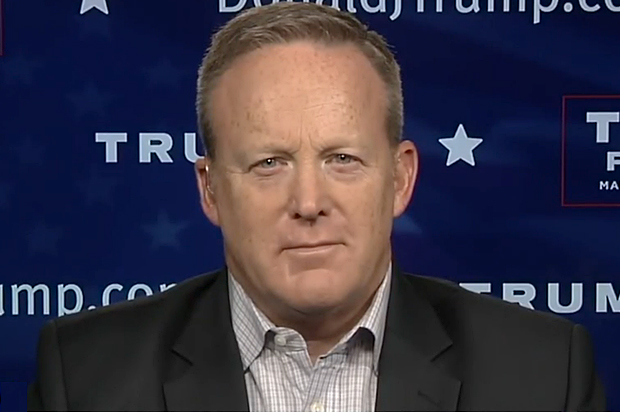The release of Donald Trump’s odious 2005 hot mic moment boasting of groping women has not only sent congressional Republicans running for the hills, it has left his most ardent supporters forced to deny the definition of sexual assault in a feeble attempt to defend him.
Top Trump surrogate Rudy Giuliani appeared for the so-called full Ginsburg (appearing on the major Sunday morning news shows) before the second debate to lay out the Trump campaign’s tactic: Trump’s confession that his celebrity allows him to freely “grab [women] by the pussy” is not actually a description of sexual assault.
“What Trump is describing in that tape is sexual assault,” host George Stephanopoulos informed Giuliani on ABC’s “This Week.”
“That’s what he’s talking about,” Giuliani conceded. “You know, whether it happened or not,” he added, “I don’t know, and how much exaggeration was involved in that I don’t know.”
Then, projecting Trump’s conversation with Billy Bush of “Access Hollywood” onto all males, Giuliani argued that “there’s a tendency on the part of men at different times to exaggerate things like this.”
Later that night, Trump himself was asked by debate moderator Anderson Cooper about his hot mic moment.
“You described kissing women without consent, grabbing their genitals,” the CNN host noted.
“That is sexual assault. You bragged that you have sexually assaulted women. Do you understand that?” Cooper asked Trump.
“No,” Trump replied. “I didn’t say that at all.”
Trump’s campaign manager Kellyanne Conway picked up the official Trump campaign line in the spin room after the town hall-style debate.
Instead of condemning Trump’s remarks, Conway took issue with the use of the words “sexual assault” to describe his remarks.
“That’s a very unfortunate phrase, and people really should stop using it,” she told CNN’s Dana Bash.
When Bash pointed out that Trump had in fact described a sexual assault, Conway argued that Trump “did not say the word ‘sexual assault’” in the tape.
Elsewhere in post-debate spin rooms, the Republican National Committee was getting itself caught up in a national controversy while attempting to defend Trump’s 2005 comments.
“Would you characterize the behavior described in that as sexual assault,” the conservative Weekly Standard’s John McCormack asked the GOP’s top spokesperson, Sean Spicer.
“I don’t know,” Spicer replied. “I’m not a lawyer.”
But the Republican National Committee’s feigned ignorance in defense of Trump did not hold up for very long. When confronted with his quote, Spicer denied ever making it.
“I never said it,” Spicer later insisted when The Washington Post called to check his quote.
McCormack provided audio of his taped interview with Spicer to the Post, and he also asked the same question of top Trump surrogate and U.S. Senator Jeff Sessions of Alabama.
“Beyond the language, would you characterize the behavior described in that as sexual assault, if that behavior actually took place?” McCromack asked Sesssions in a post-debate spin room on Sunday.
“I don’t characterize that as sexual assault. I think that’s a stretch,” replied Sessions, who sits on the Senate Judiciary Committee’s Subcommittee on Crime & Terrorism, which has jurisdiction over the Office on Violence Against Women.
“So if you grab a woman by the genitals, that’s not sexual assault?” McCormack pressed.
“I don’t know. It’s not clear that he — how that would occur,” the senator said.
The morning after the debate on Fox News, Trump’s campaign manager Conway even built upon the official Trump line blurring the definition of sexual assault:
I think there’s something there, because this term — “sexual assault”— has been bandied about. And I will tell you as somebody who’s worked with and certainly has in my life, as I’m sure we all do, victims of sexual assault, it demeans them to equate that with this for political purposes.


